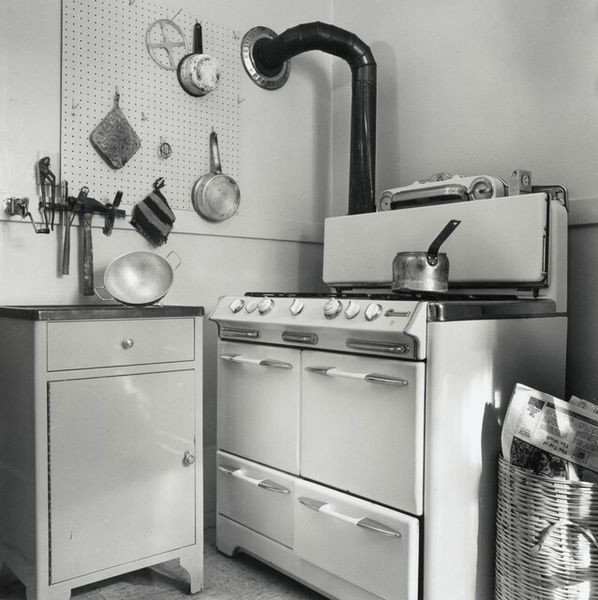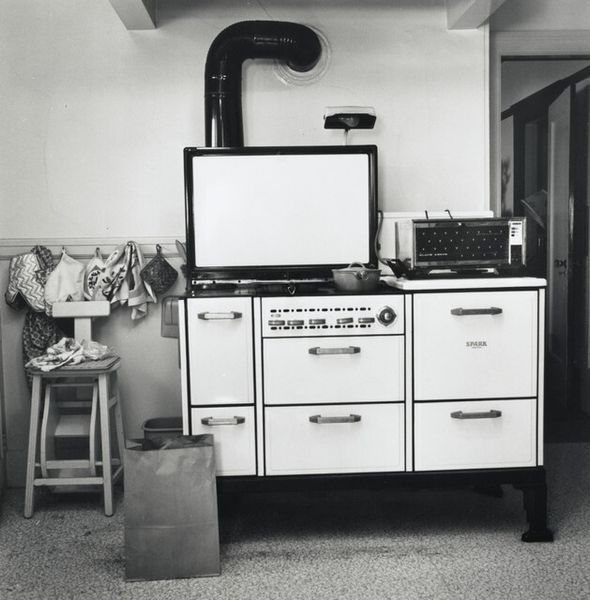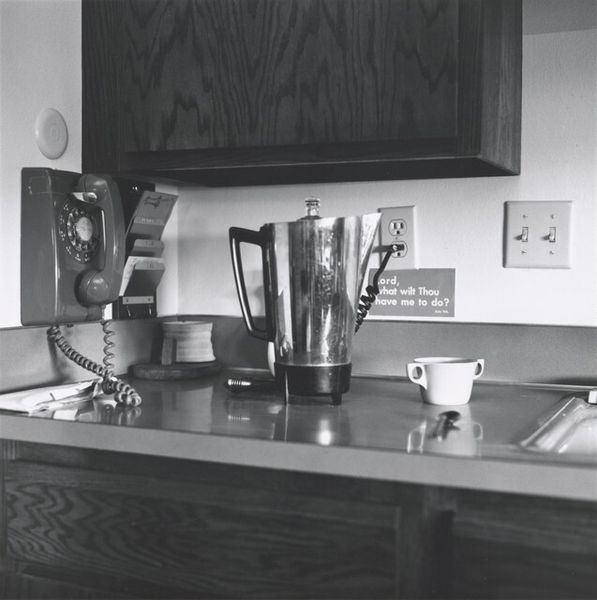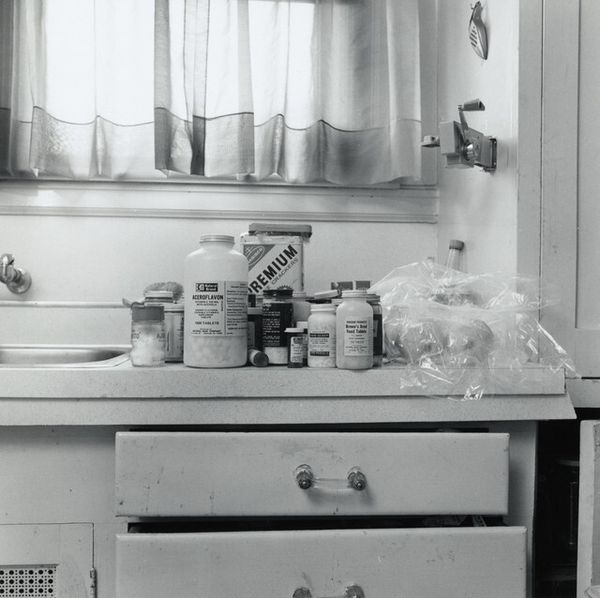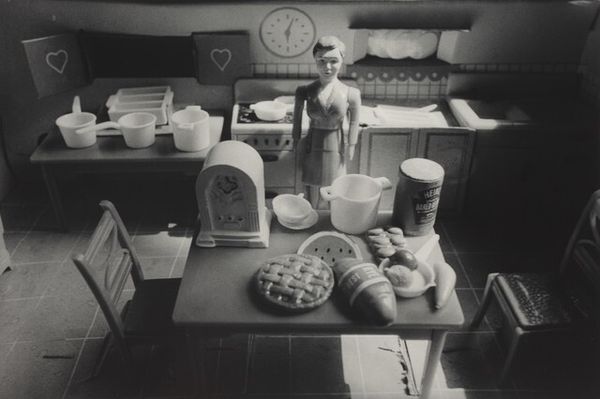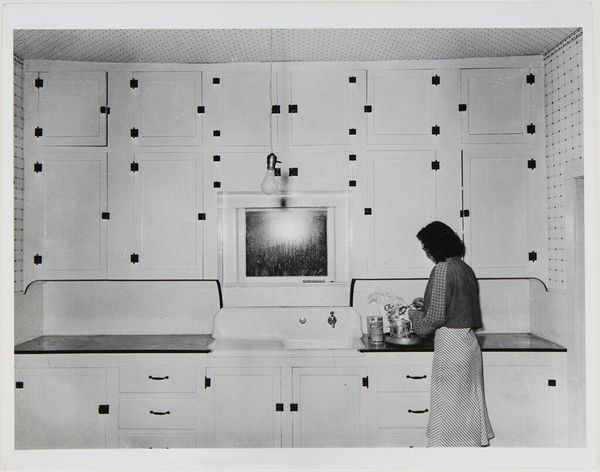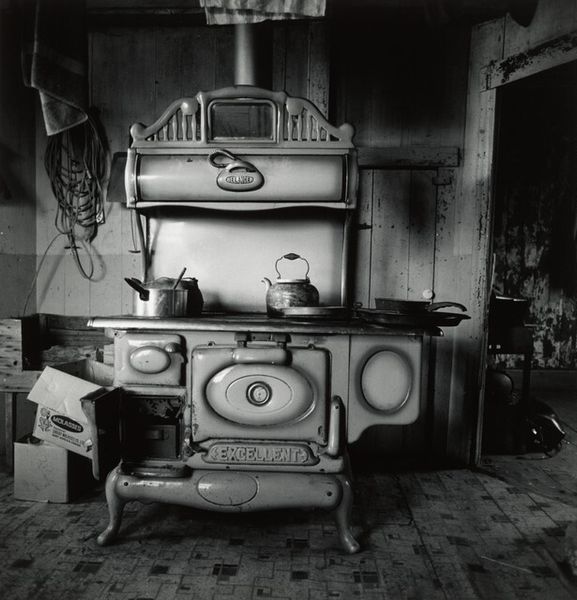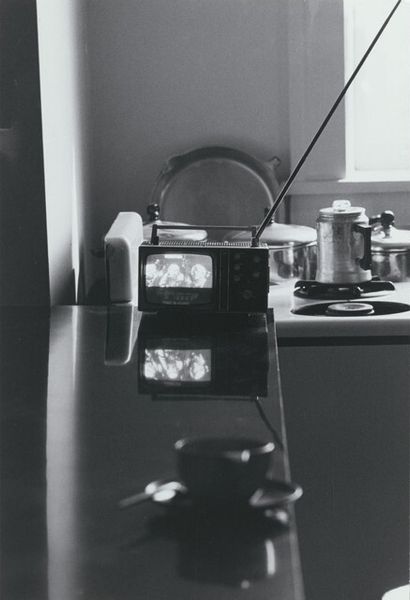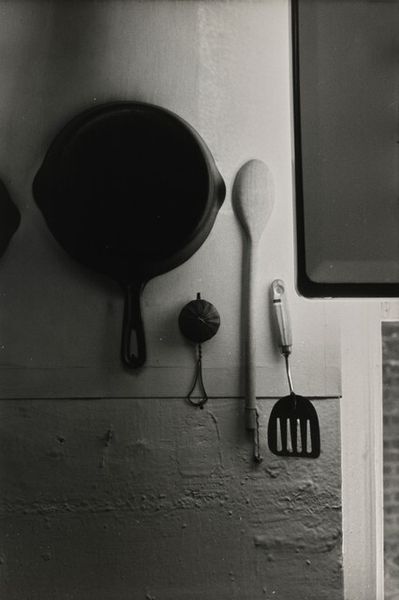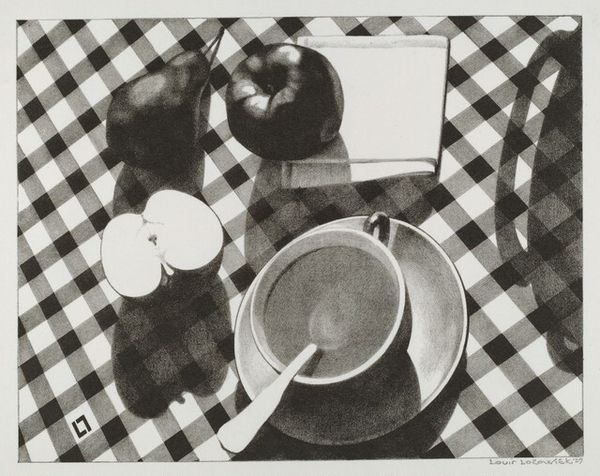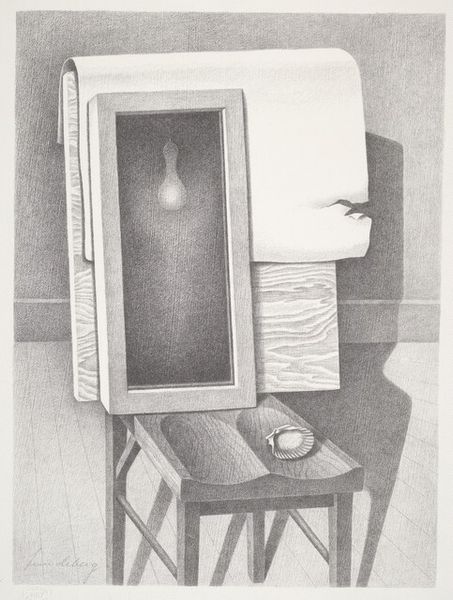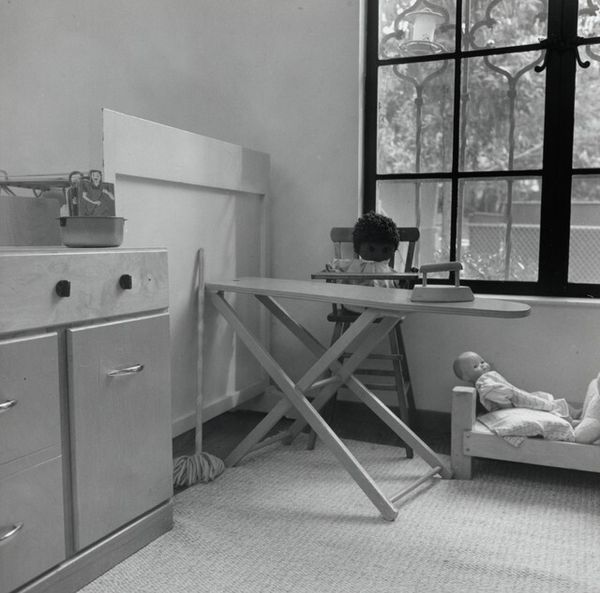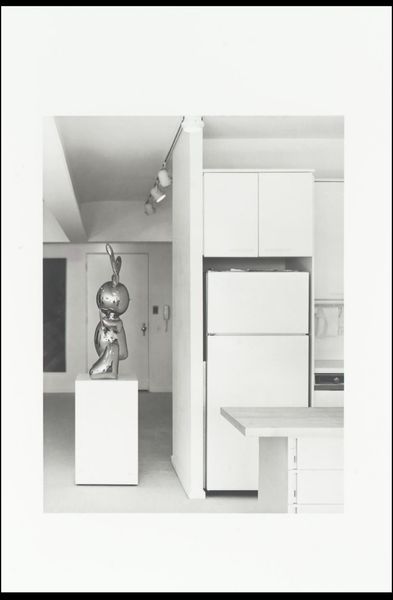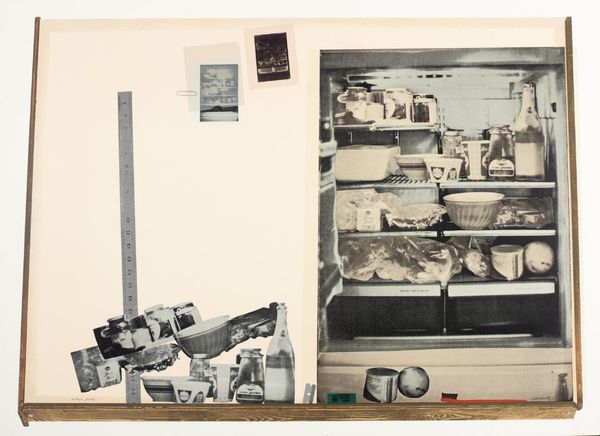
paper, photography, installation-art
#
conceptual-art
#
appropriation
#
constructivism
#
paper
#
photography
#
geometric
#
black and white
#
installation-art
#
monochrome
Dimensions: image: 23.6 x 15.8 cm (9 5/16 x 6 1/4 in.) sheet: 25.3 x 20.3 cm (9 15/16 x 8 in.)
Copyright: National Gallery of Art: CC0 1.0
Curator: We're looking at James Casebere's "Fork in the Refrigerator." This photographic work, potentially from between 1975 and 2000, uses paper and installation to create a compelling image. Editor: Well, my immediate response is… unsettling. The monochrome palette, the geometric starkness of the forms—it all feels strangely lifeless, a parody of domesticity. Curator: It's intriguing you say that. Casebere’s known for his constructivist style, employing rudimentary shapes and basic materials to construct spaces, frequently critiquing domestic ideals, societal roles, and mass culture. His deliberate appropriation speaks volumes, doesn't it? Editor: Absolutely. The oversized fork jammed into the refrigerator door dominates the scene. It’s almost violent in its absurdity. Is Casebere challenging the viewer’s perception of commonplace scenes? The contrast is enhanced through photography. Curator: Yes, I think so. Look at the sharp angles of the miniature kitchen and the disproportionate fork, creating both humor and discordance. It could imply dissatisfaction with everyday objects or, more profoundly, expose social absurdities, all packaged within a familiar scene. The lack of naturalistic color pushes us away from any attempt to immerse ourselves within the reality it evokes. Editor: Considering the context in which it was made, I'm intrigued to consider it as an examination of postwar consumerism and its discontents. Or a commentary on the "ideal home" versus lived reality and how it exists beyond reach in many families. The artificial construction amplifies this sentiment. Curator: I appreciate your read. The formal aspects combined with your social historical background bring another depth to understanding the impact that art has on each and everyone of us. Editor: And I find myself appreciating your perspectives of its style and method and its potential symbolic impact on an individual’s interaction. It certainly gives plenty to consider.
Comments
No comments
Be the first to comment and join the conversation on the ultimate creative platform.
